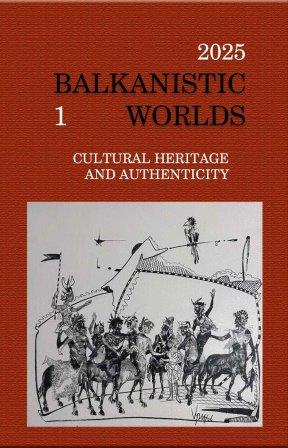The Imagined Memory/Invented History
The Imagined Memory/Invented History
Author(s): Magdalena Kostova-PanayotovaSubject(s): Language and Literature Studies, Studies of Literature, Other Language Literature, British Literature
Published by: БАЛКАНИСТИЧЕН ФОРУМ - МЕЖДУНАРОДЕН УНИВЕРСИТЕТСКИ СЕМИНАР ЗА ПРОУЧВАНИЯ И СПЕЦИАЛИЗАЦИИ
Keywords: Rushdie; imaginary homelands; the exile of the Moors; memory
Summary/Abstract: Rushdie's first essay, in his book Imaginary Homelands: Essays and Criticism 1981-1991, published four years before The Moor's Last Breath, seems to me very important to the understanding of this novel. In this Rushdie essay, exiled writers are seen as haunted by a sense of loss, but the homeland is always imagined, the view of it, a view through broken mirrors. However, they are not simply mirrors of nostalgia, but "a useful tool with which to work in the present...we are not gods, but wounded beings, cracked lenses, capable of only fragmentary perceptions" (Rushdi 1991). Rushdie compares the emigrant's gaze to the past, to the imagined homeland, to the "Indian of the mind" with that of Lot's wife: even if you turn into a pillar of salt, you cannot resist looking back. For the writer, the novel is one of the ways to deny the official, political version of the truth, quoting Kundera: "Man's struggle against power is a struggle of memory against forgetting" (ibid.). The novel's title receives various illuminations in the course of the text, referring both successively and simultaneously to the story of Boabdil, to the iconic "Song of my Cid" (the comparison of Bella with Jimena and Camoinche with Cid, later in the novel, the story of the Japanese artist and the Moor), to Shakespeare's "Othello", but also to the gas station with the same name "Last Breath" at the beginning of the text. The historical eras to which the narrative is directed at the very beginning are several: the Spanish Reconquista of Granada and the exile of the Moors, the establishment of trade relations between Europe and India, the colonial expansion of Portugal, social and political events in India in the 20th century, and the narrative in the writer's ironically mimetic strategy it resembles the classic novels of the 19th century, describing the lives and family histories of four generations of Gamma-Zogobi.
Journal: Balkanistic Worlds
- Issue Year: 1/2025
- Issue No: 1
- Page Range: 207-217
- Page Count: 11
- Language: English

